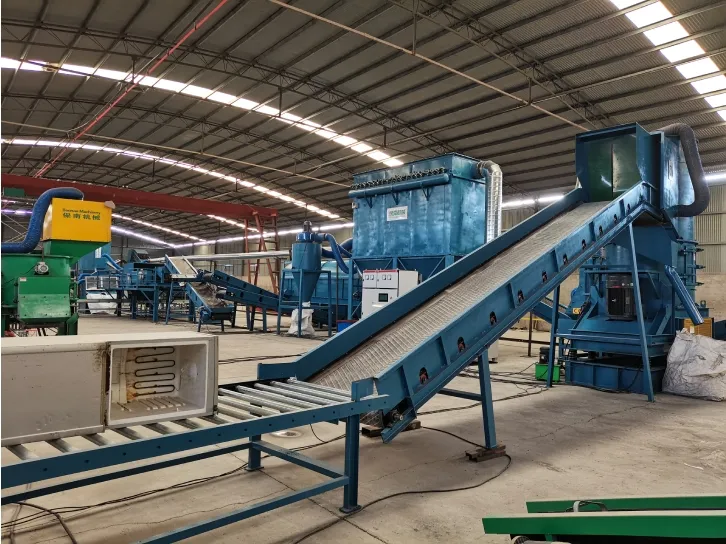

Th11 . 24, 2024 01:18 Back to list
How Do You Recycle Electronic Waste?
In today's digital age, electronic devices have become an integral part of our daily lives. From smartphones and laptops to household appliances, we rely on technology for communication, entertainment, and productivity. However, the rapid evolution of technology also leads to the inevitable disposal of electronic waste, or e-waste, which poses significant environmental hazards if not managed properly. Therefore, understanding how to recycle electronic waste is crucial for sustainable living and preserving our planet.
What is Electronic Waste?
Electronic waste refers to discarded electrical or electronic devices. This category includes a wide range of products, such as computers, televisions, smartphones, batteries, and more. As technology advances, older models become obsolete, leading to millions of tons of e-waste generated each year. According to recent estimates, approximately 50 million metric tons of e-waste are produced globally annually, a figure that is projected to grow.
The Importance of Recycling E-Waste
Recycling electronic waste is essential for several reasons. Firstly, e-waste contains valuable materials such as metals (gold, silver, copper), plastics, and glass, which can be recovered and reused. By recycling these components, we reduce the need for new raw materials, decreasing environmental degradation associated with mining and manufacturing processes.
Secondly, e-waste can contain harmful substances like lead, mercury, and cadmium. When disposed of improperly, these heavy metals can leach into soil and water, posing risks to human health and ecosystems. Recycling ensures that hazardous materials are handled safely and do not contribute to pollution.
Finally, responsible recycling of e-waste supports a circular economy, where products are designed for longer lifespan and recyclability, reducing overall waste and fostering sustainable consumption patterns
.
Steps to Recycle Electronic Waste
1. Identify E-Waste The first step in recycling is identifying which of your electronic items count as e-waste. Look for devices that you no longer use or are broken, including old phones, chargers, batteries, and appliances.
2. Check for Local Recycling Programs Many communities offer e-waste recycling programs. Check with your local government or waste management facility to find out if there are designated drop-off centers or special collection days for e-waste. Some retailers also have take-back programs where you can return old devices.
3. Prepare for Recycling Before recycling, ensure that you remove any personal data from your devices. For smartphones and computers, perform a factory reset or wipe the hard drive to protect your privacy.
4. Use Certified E-Waste Recyclers It’s crucial to choose recyclers that are certified and adhere to proper recycling practices. Look for programs that follow e-Stewards or R2 certifications, which ensure responsible recycling and proper disposal of hazardous materials.
5. Spread Awareness Educate your friends and family about the importance of recycling e-waste. By increasing awareness, more individuals can participate in responsible disposal practices, reducing the overall impact of e-waste on the environment.
Conclusion
Recycling electronic waste is a vital step towards a sustainable future. By taking the initiative to recycle our old devices responsibly, we not only protect the environment but also contribute to a healthier economy. The next time you upgrade your technology, remember that the responsible disposal of your old electronic devices is just as important as the new purchase itself. So, take action, recycle, and help create a cleaner and greener planet for generations to come.
Latest news
Troubleshooting Common Eddy Separator Problems
NewsJul.04,2025
The Role of Metal Recycling Plants in Circular Economy
NewsJul.04,2025
The Impact of Recycling Line Pickers on Waste Management Costs
NewsJul.04,2025
Safety Features Every Metal Shredder Should Have
NewsJul.04,2025
How Industrial Shredders Improve Waste Management Systems
NewsJul.04,2025
How Cable Granulators Contribute to Sustainable Recycling
NewsJul.04,2025